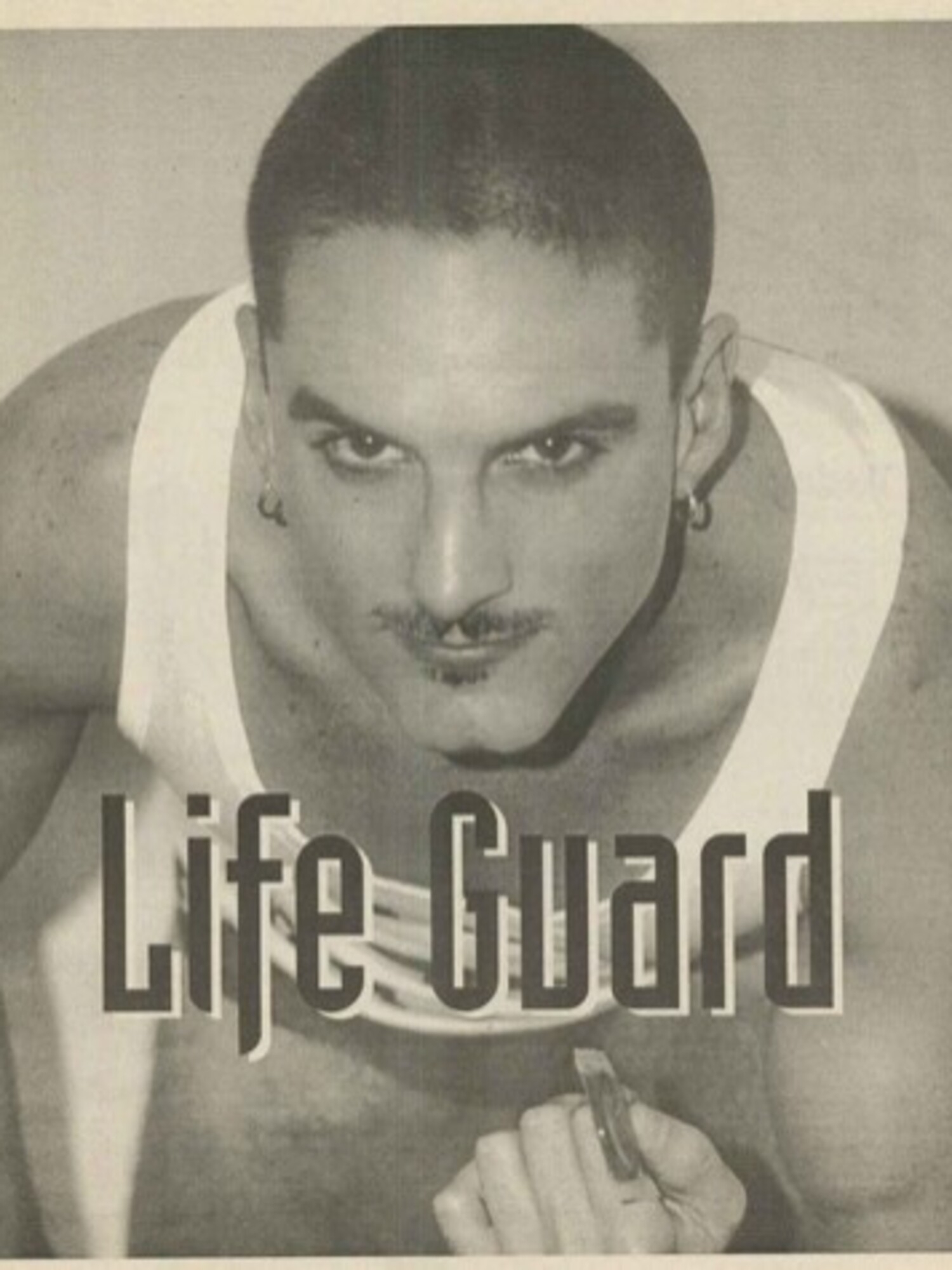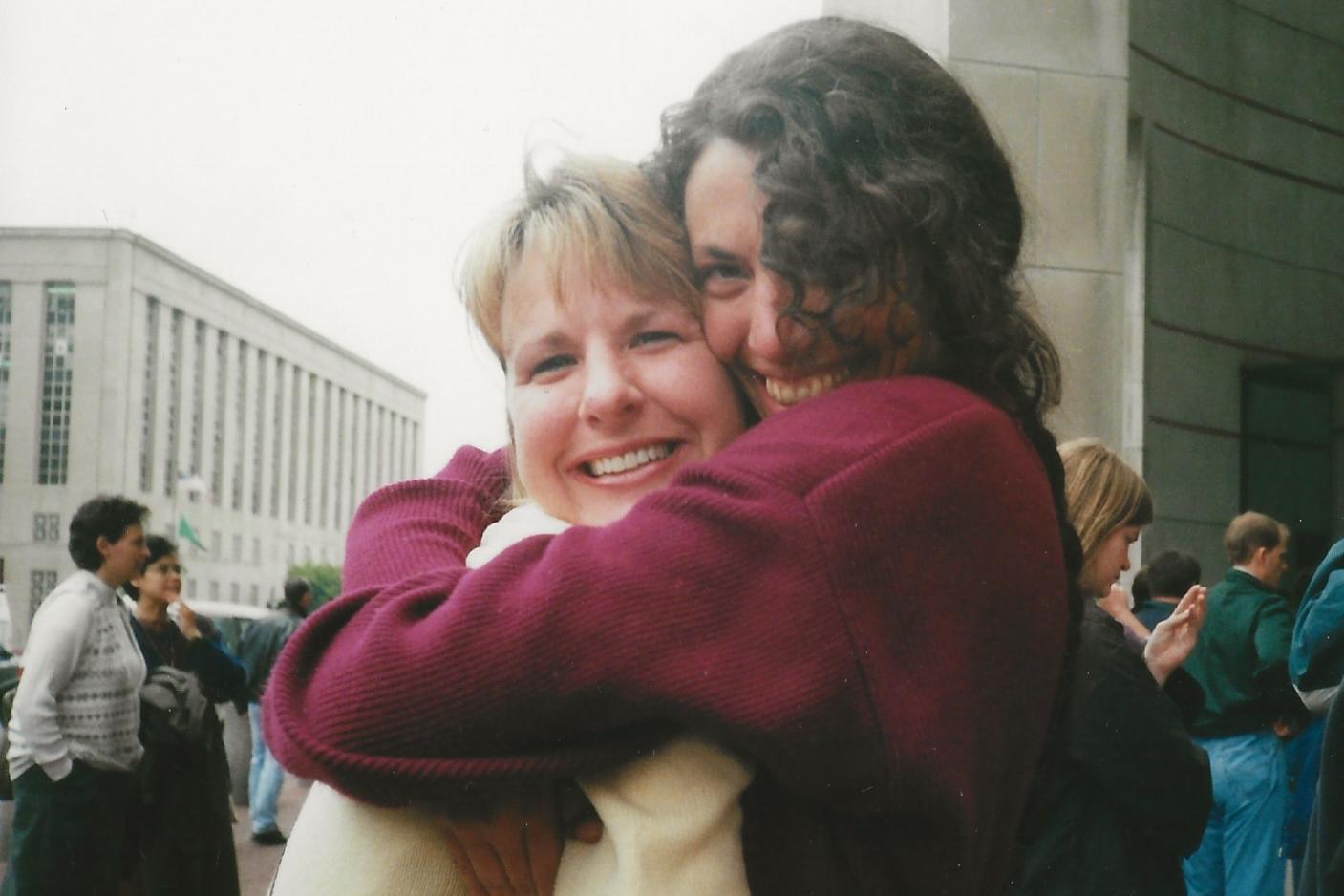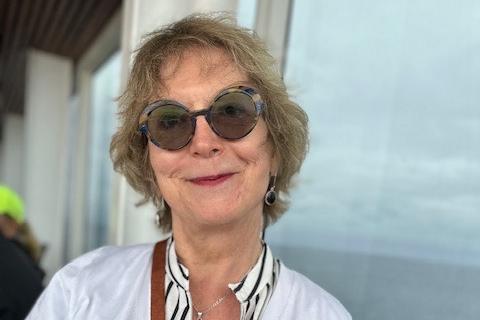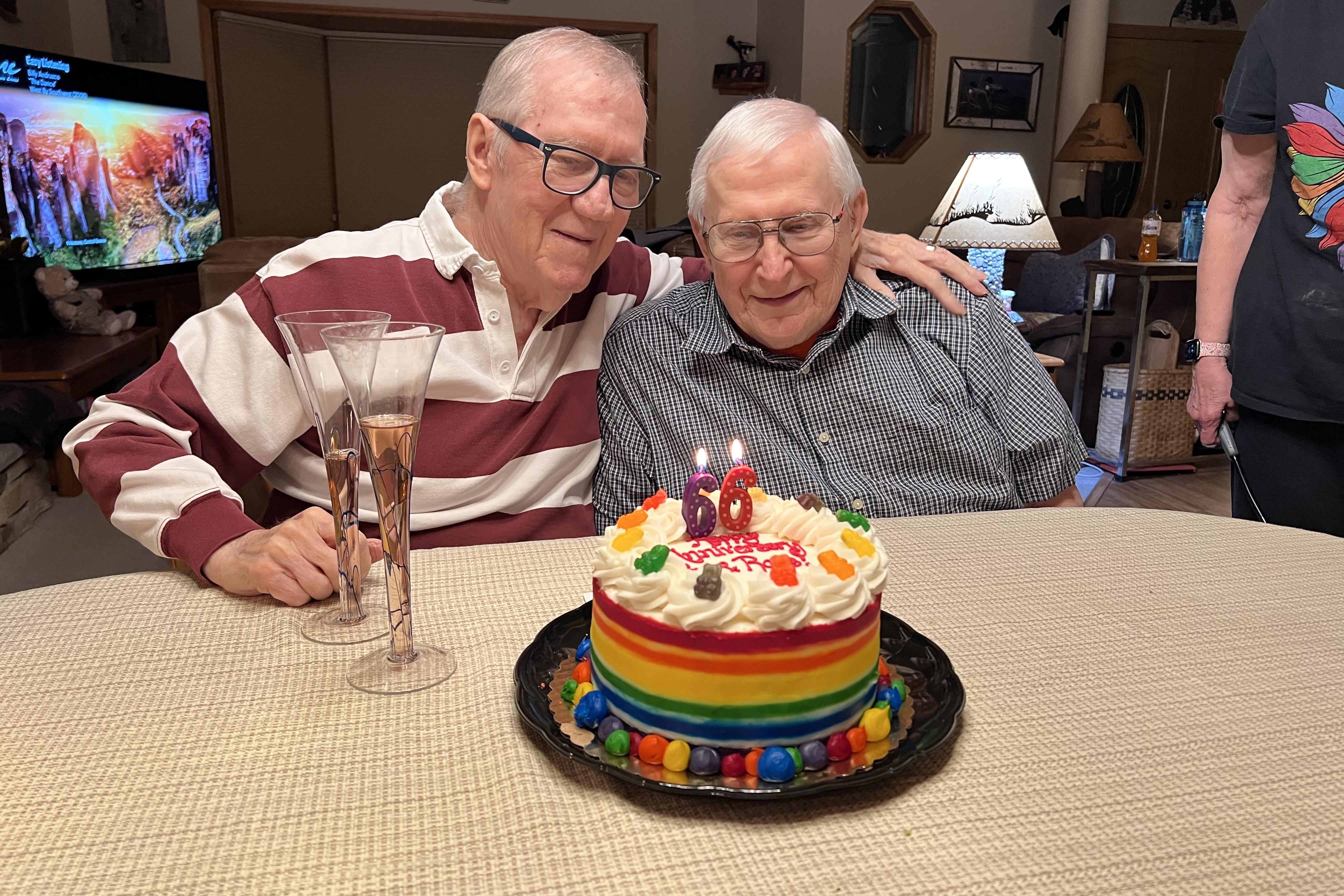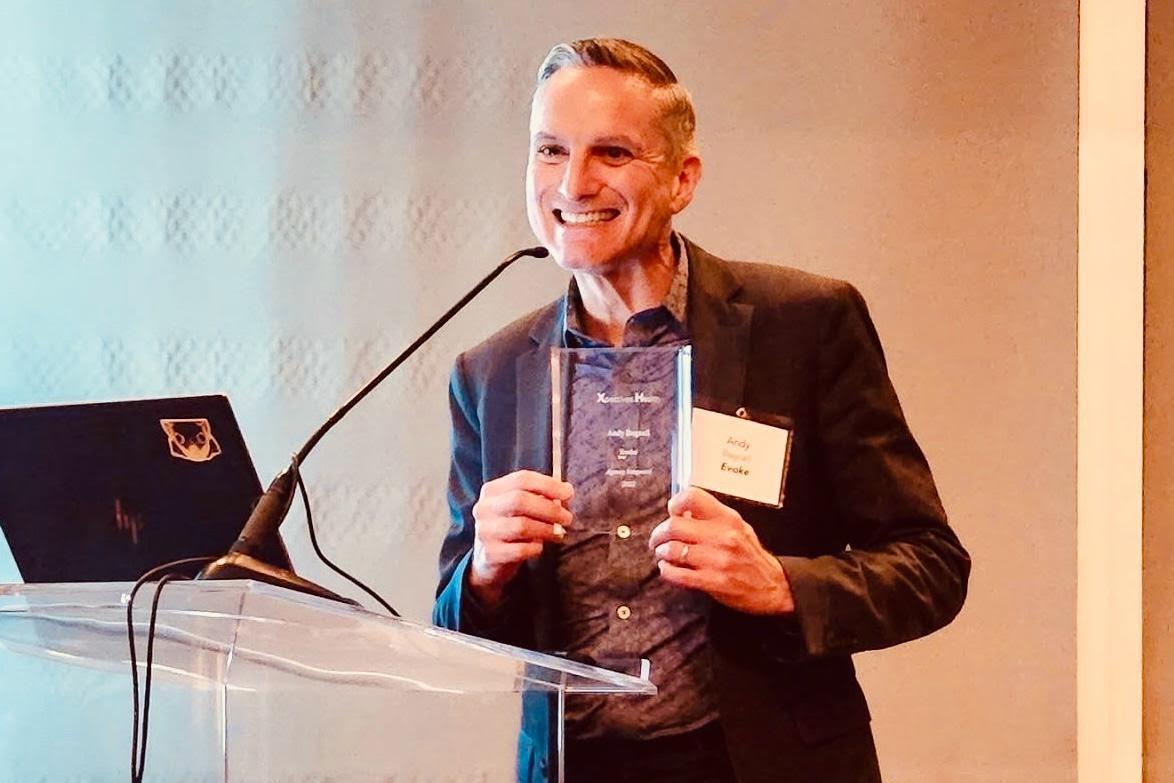
Andy Bagnall: this is who I was meant to be

Andy Bagnall was born and raised in Milwaukee, Wisconsin and attended Marquette University High School. “By the time I hit puberty, I knew this is who I was meant to be,” he says. “I didn’t struggle with my sexual orientation like some people do, but coming out did take time for me. I had a fear of being rejected or being seen as ‘less than.’”
Growing up in the 80s “new wave” scene, however, did make coming out a little easier.
“It was a great time to be under 21, because you had places to go,” remembers Andy. “Park Avenue. Bailey's. Club Marilyn. 21 Below. The new wave scene was very queer friendly and it was great to see other gay men openly being themselves in these spaces.”
Andy had mixed emotions on his first visit to a gay bar–Milwaukee’s premier gay dance bar, La Cage. “At first I was terrified that I would see someone I knew there, which is funny when you think about it,” he recalls. “Once I was able to get over that initial fear, I loved being in an environment that was by us and for us; where you could be yourself without fear of judgment or violence.”
Once one of the few places where members of the LGBTQ community connected and socialized, Andy underscores the importance of gay bars at that time compared to today. “Not only is it more acceptable to be open about who you are today, young people have so many more options for connecting with others through technology,” he points out.
Despite that, Andy says he’s glad he came out in the absence of cell phones and social media, which he feels was more freeing than what youth experience today. “Everything is documented and shared now, so everyone is aware of your business. People aren’t allowed to just make mistakes and learn from them anymore.”
Andy describes the weekly gay newspapers and magazines of the 80s and 90s like Wisconsin Light and Q Voice, “lifelines,” connecting him to other like-minded people.
“We would read them cover to cover. It was how we found out about what was going on and what fun events were coming up.”
Working at ARCW was Andy’s first connection to the larger LGBTQ community and where he connected with several mentors.
“Every day I was surrounded by dedicated, out-and-proud folks and allies, all working together to make a difference,” he recalls.
There are two people Andy says were particularly influential in his life. He credits Chris Braman, who hired him for his first job, “for giving me access to all those fabulous people.” TL Michael Auman, a Capuchin brother who volunteered at ARCW giving massages to people living with AIDS, became Andy’s spiritual mentor and lifelong friend. Although he passed away in 2023, Andy says he will always remember TL for his “incredible kindness,” as he provided much-needed human contact for many people who had been abandoned by their families and society.
Andy fondly remembers “Boys’ Nights,” where teams of ACRW employees and volunteers would come together to assemble safer sex kits for bar outreach.
“There was something very special about gay men coming together to help and support one another. I met two of my best friends participating in Boys’ Nights, and they’re still some of my dearest friends.”
And, of course, monthly outreach teams distributing free safer sex kits to all of the city’s gay and lesbian bars was another highlight.
“It was a fairly radical concept at the time to have out-and-proud gay men going out into the community to support other gay men they didn’t know,” says Andy.
“It was a difficult time to be gay or bisexual, and our outreach let them know that they were loved, supported, and valued. We had their backs.”
Andy is equally proud of the work he was part of as community co-chair for the State of Wisconsin’s HIV Prevention Community Planning Council from 1997-1998. Funded by the CDC, the council was comprised of diverse community members representing community-based organizations and state health department employees, working together to build an HIV prevention plan for the state.
"Your queerness is your superpower"
Andy moved to New York in 1998, where he has worked in various roles that focus on health equity, a passion that has bloomed from the seeds planted through his work with ACRW and the Milwaukee community. He and his husband, Dr. Neal Padte, are enthusiastic supporters of The Hetrick Martin Institute’s work with LGBTQ+ youth and Lambda Legal’s critical work securing and defending the rights of the LGBTQ+ community and all people living with HIV.
While activists like Andy have played an important role in moving the needle in the right direction, he stresses that there is still much work to be done.
“Lately it feels like we’re moving backward instead of moving forward,” he says. “The ‘religious freedom’ rhetoric that we’re hearing today is very similar to the ‘family values’ debates of the 80s and 90s. The pendulum has swung, and now we’re back to fighting. Our rights can be taken away–the Supreme Court’s decision on abortion rights is a perfect example.”
Andy’s advice to young people: “Take a stand, speak up, demand better. And be kind to one another.”
He has hope and admiration for today’s youth, a more diverse and accepting generation than the one he grew up with. Inspired by their individuality, self-expression and gender fluidity, he urges them to stand together against the adversity the LGBTQ community still faces.
“Your queerness is your superpower. Don’t dim your lights to make others more comfortable.”
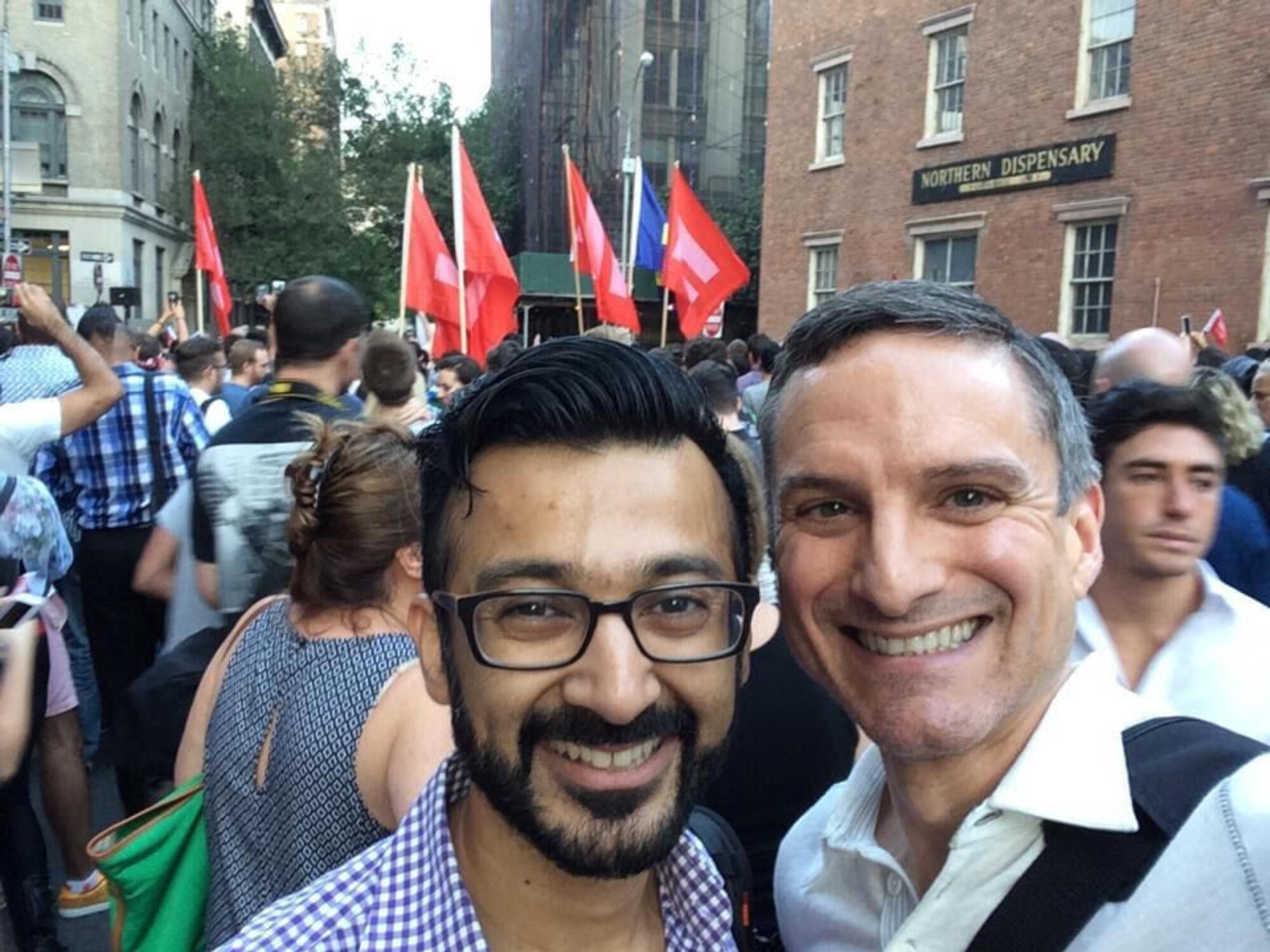 Dr. Neal Padte and Andy Bagnall, 2015
Dr. Neal Padte and Andy Bagnall, 2015
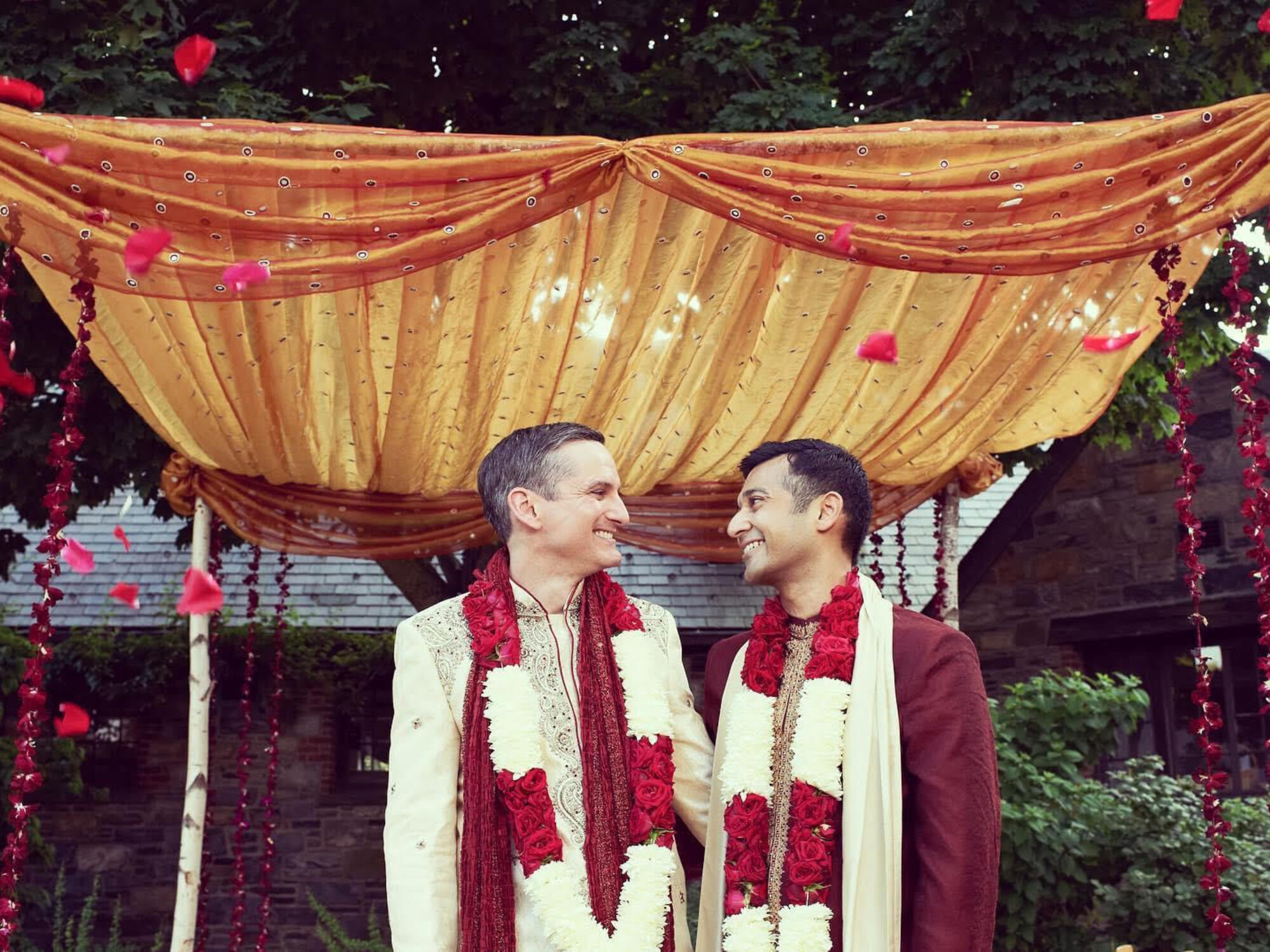 Andy's wedding day
Andy's wedding day
recent blog posts
April 06, 2025 | Michail Takach
Camille Farrington & Vicki Shaffer: standing up for students
March 31, 2025 | Amy Luettgen
March 29, 2025 | Michail Takach
The concept for this web site was envisioned by Don Schwamb in 2003, and over the next 15 years, he was the sole researcher, programmer and primary contributor, bearing all costs for hosting the web site personally.
